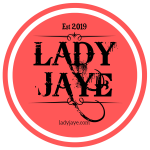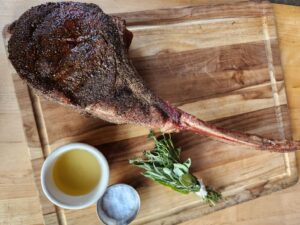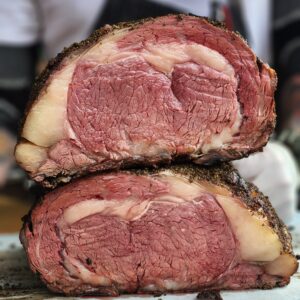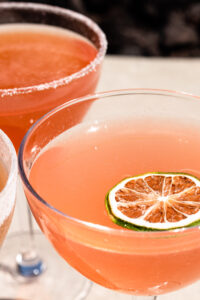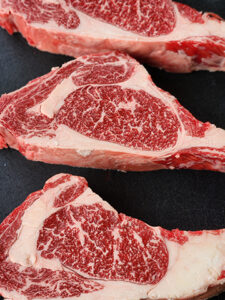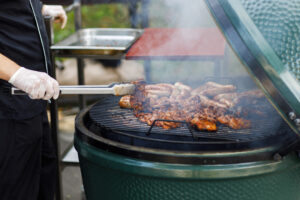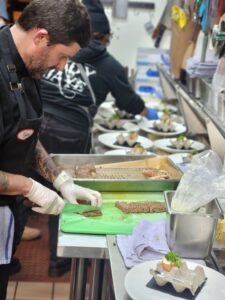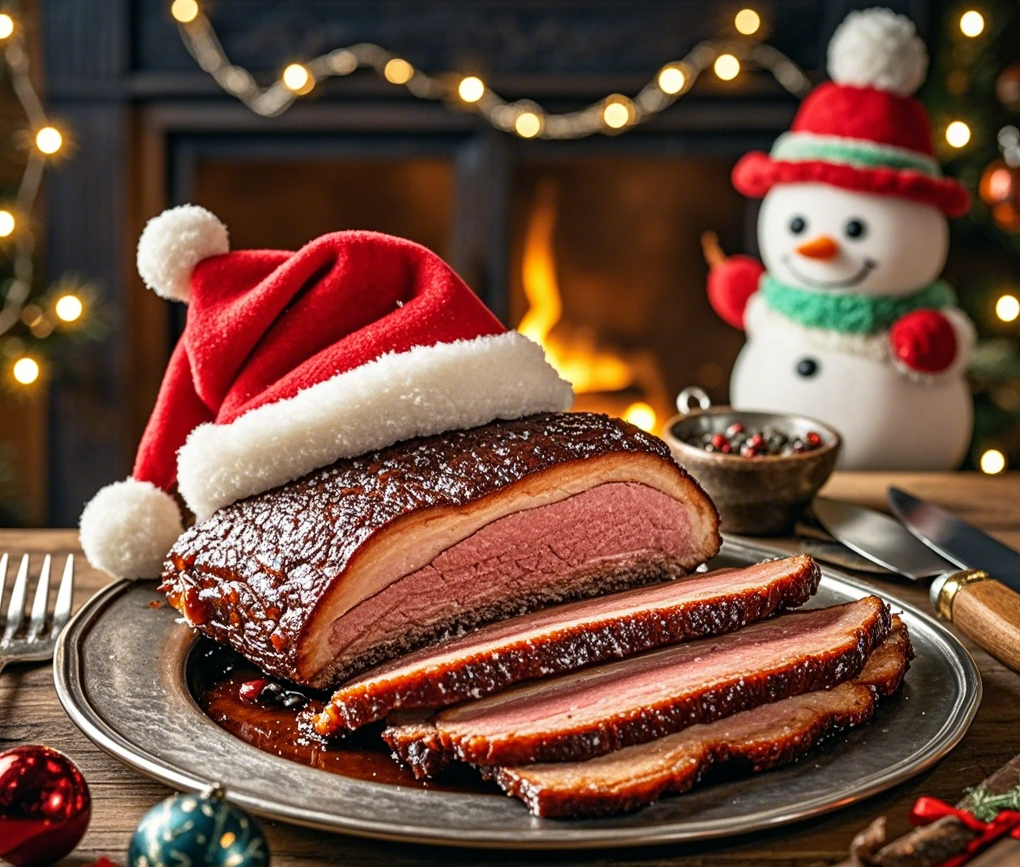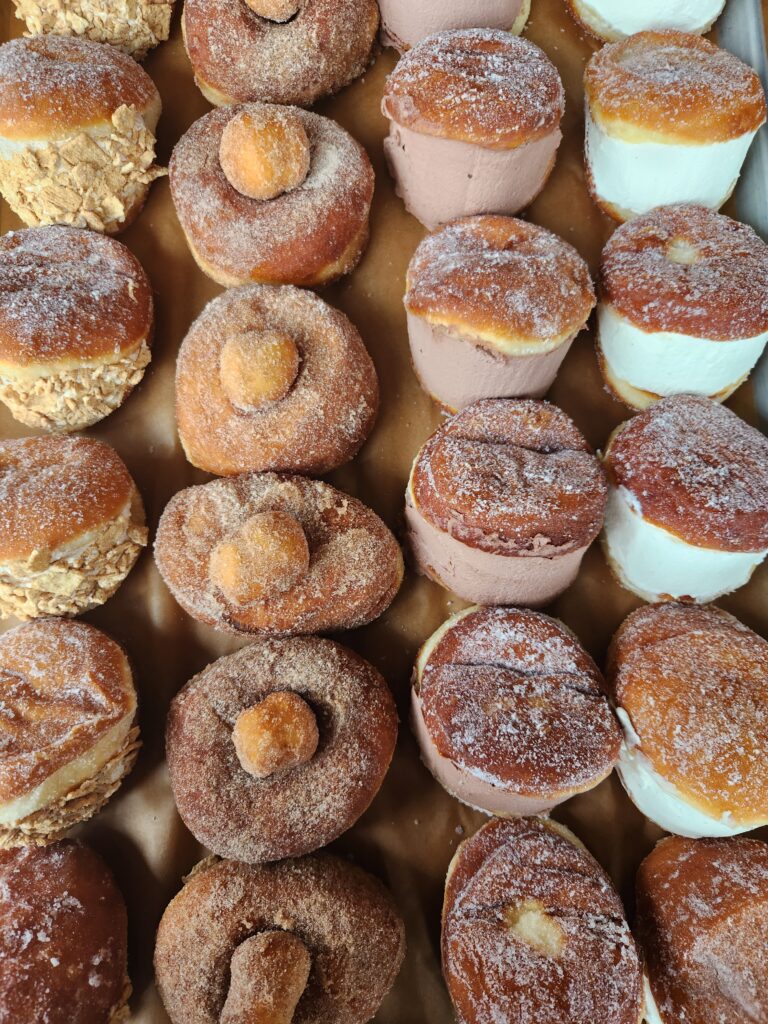Seattle Meat Dudes on : What Makes Great Barbecue
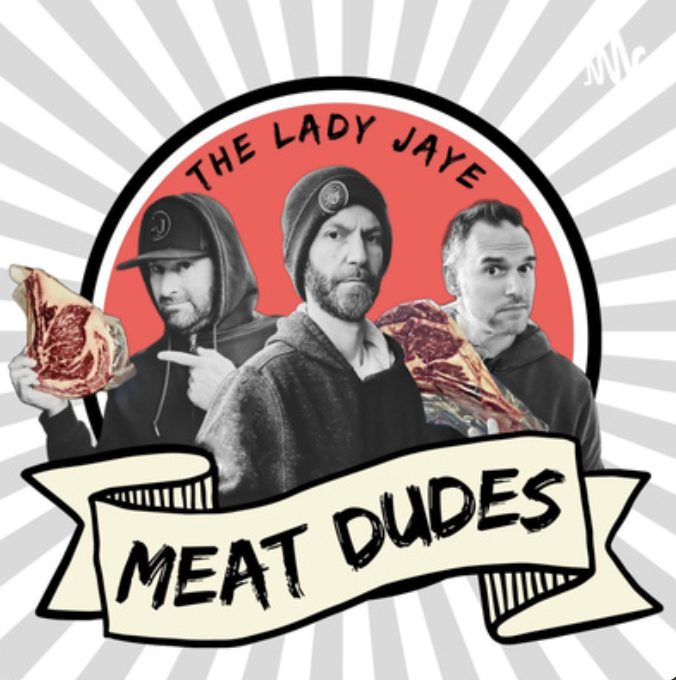
Join the Lady Jaye Meat Dudes for Episode 2 of their podcast where they discuss what makes great BBQ.
What makes the Best BBQ? The Quality of your meat!
There was a guy who walked up our outdoor patio in West Seattle stairs about a month ago and asked “What’s the ONE thing that makes GREAT BBQ?” I panicked for one second (because I’m not the Pit Master) but quickly regained my confidence and said: “It’s all about the quality meat for BBQ.” It came out of me with conviction because it’s the truth. Yes the smoking device, the preparation, the slow and low cooking style, the rub, the sauce and the wood, all play a role. But the quality of your meat is the foundation. It’s truly where it all starts. And it’s what WE are all about.
What makes meat high quality?
Quality sourced meat is determined by a number of factors, including:
- Breed of the animal: Different breeds of cattle, pigs, and sheep have different characteristics, and some breeds are known for producing high-quality meat.
- Diet: Animals that are fed a balanced and nutritious diet will produce meat that is tender and flavorful.
- Age: The age of the animal at slaughter can have a significant impact on the quality of the meat. Younger animals tend to produce meat that is more tender, while older animals produce meat that is more flavorful.
- Stress levels: Animals that are stressed prior to slaughter produce meat that is less tender and flavorful.
- Methods of slaughter and processing: The method used to slaughter the animal and the way the meat is processed can also impact its quality. For example, humane methods of slaughter that minimize stress to the animal tend to produce higher quality meat.
- Aging: Allowing the meat to age for a period of time after slaughter can improve its flavor and tenderness.
- Marbling: Marbling, or the distribution of fat within the muscle, can also impact the quality of meat. Meat with more marbling is generally considered to be more flavorful and tender.
If you know where your meat comes from, you can get all these questions answered honestly. And it’s very important to know where you meat comes from!
Our Local Meats are Soured In Seattle
At Lady Jaye we make it easy to eat local in Seattle. We receive 90% of our meat from Pure Country Farms about 180 miles away from our restaurant in West Seattle. In addition, they harvest 12-15 cattle per week. That is a not a large number. Now compare that to the huge facilities that are processing 1,000-10,000 per week down the road. How do YOU think the quality of meat is affected when you process 15 vs 1,000? Or 10,000?
Let’s talk about Pure Country Farms in Ephrata Washington:
- What is the Breed: 50% Angus – 50% British Baldie
- The angus has larger muscle composition and size
- British Baldie gives it that deeper richer meat flavor
- What are they being fed?
- At Pure Country they are raised on pasture 85% and finished on the local barley that surrounds the farm.
- At what aged are they being harvested?
- Pure Country harvests their beef at 22-24 months. Most large format feedlots will harvest at 16-18 months, but Pure Country has a slower and more humane way of raising cattle.
- How are their stress levels affected?
- Since they are open pasture raised and not on a large feed lot, they aren’t fighting and running into other cattle all day long, therefore not stressed and not producing cortisol and living a healthy life.
- How long are they dry aged?
- Our beef is dry aged for 21 days.
- Marbling:
- The marbling on Pure Country beef is some of the best we have ever seen and would stand up to USDA Prime on any day of the week.
We are very fortunate to be a part of this cattle program. And thanks to our friends at Preservation Meats for building great relationships with the top farms in Washington.
Questions to ask your butcher
Visit our butcher shop in West Seattle! Or get started shopping at your local butcher shop! Here are some key questions to ask your butcher:
- Where does your meat come from?
- (Are they telling you it’s “local” or are they naming a specific farm?)
- What is the diet of the animal?
- Grass fed finished on local grains?
- Corn fed?
- Do they even know?
- Are these steaks dry aged? How long?
- (18-28 days is a great standard)
- Wet aging does NOT count
- Look for cleanliness of the case/shop
Ready to take control of your restaurant’s finances? Discover the path to financial mastery at www.cheftoowner.com. Transform your culinary passion into a profitable business today!

